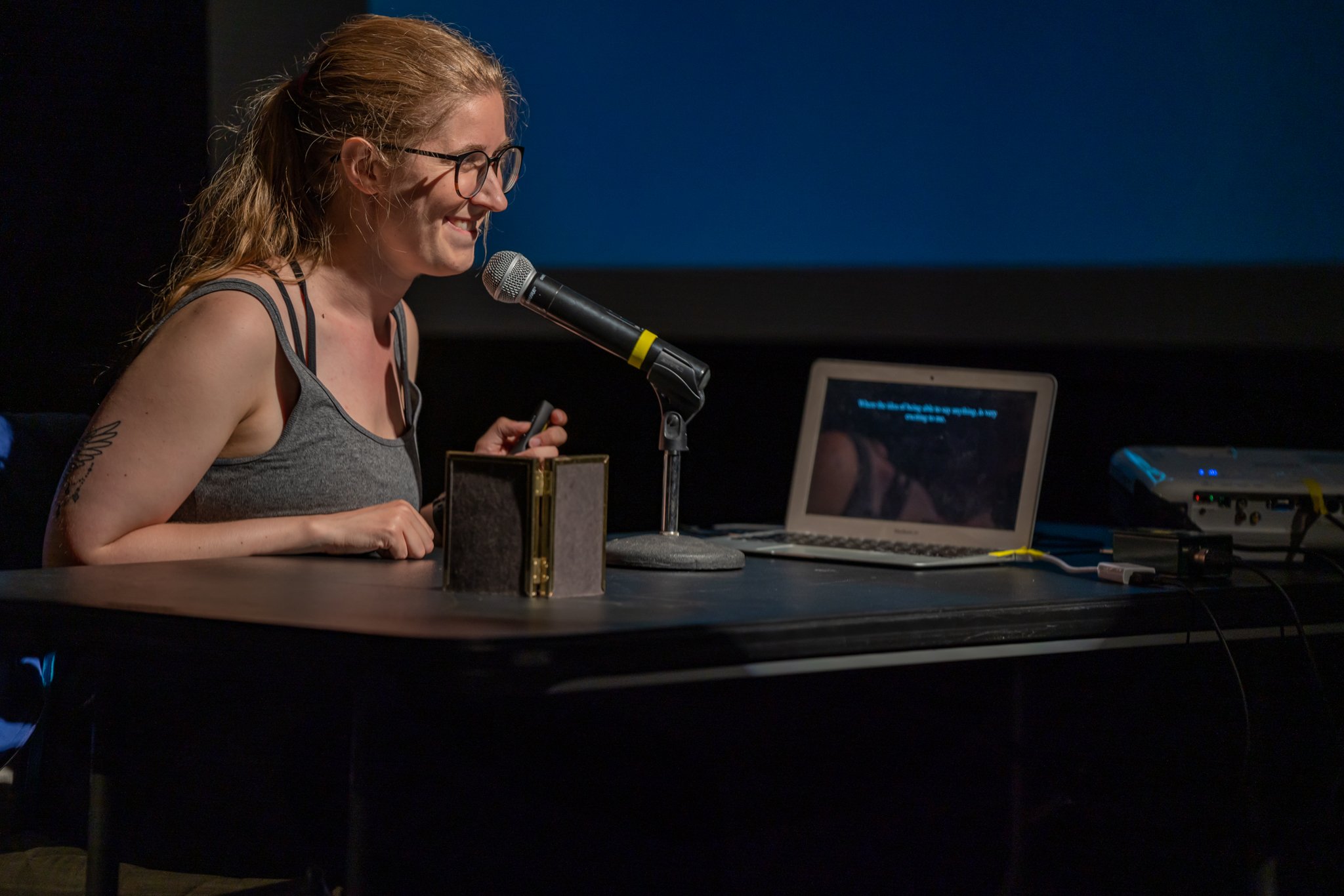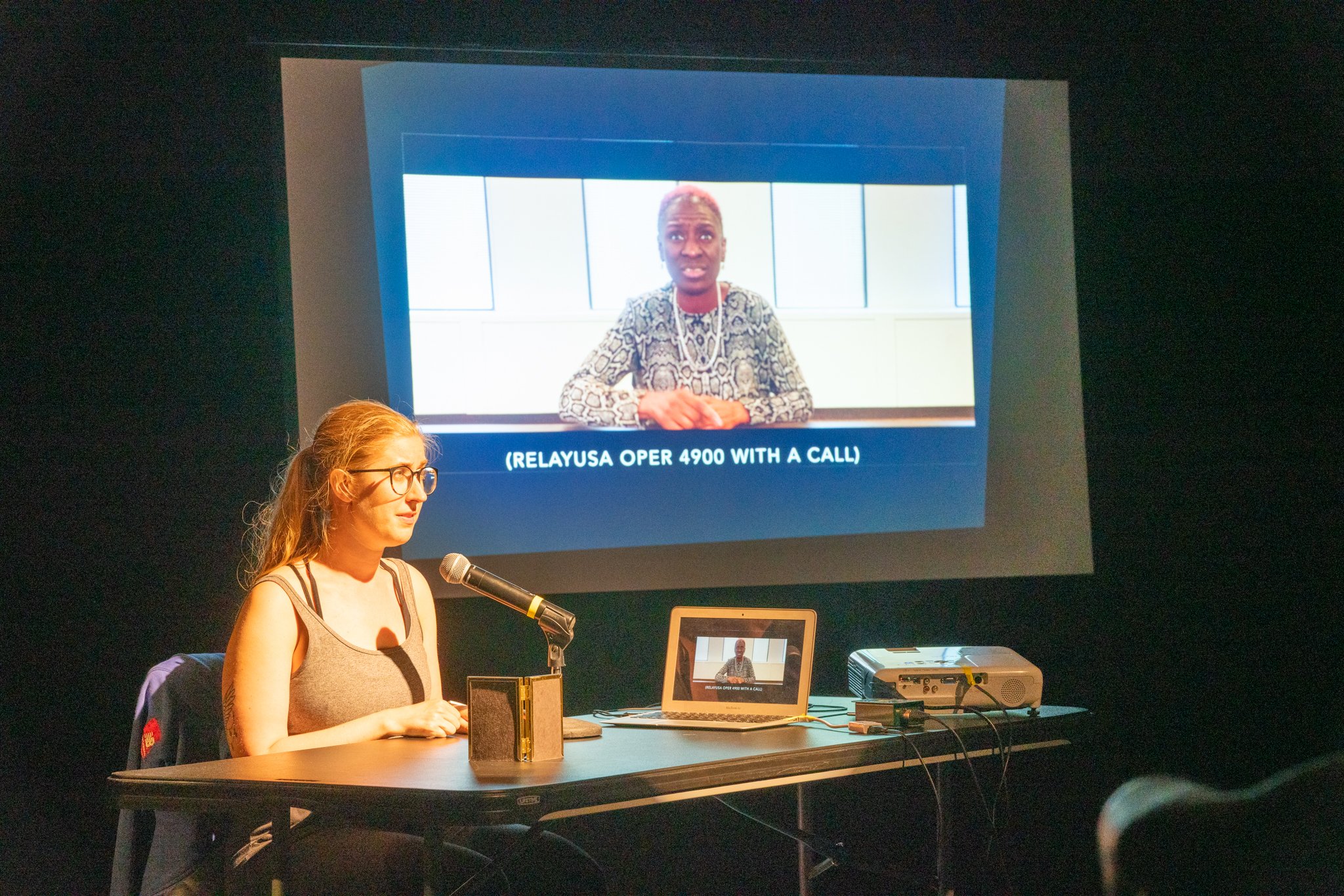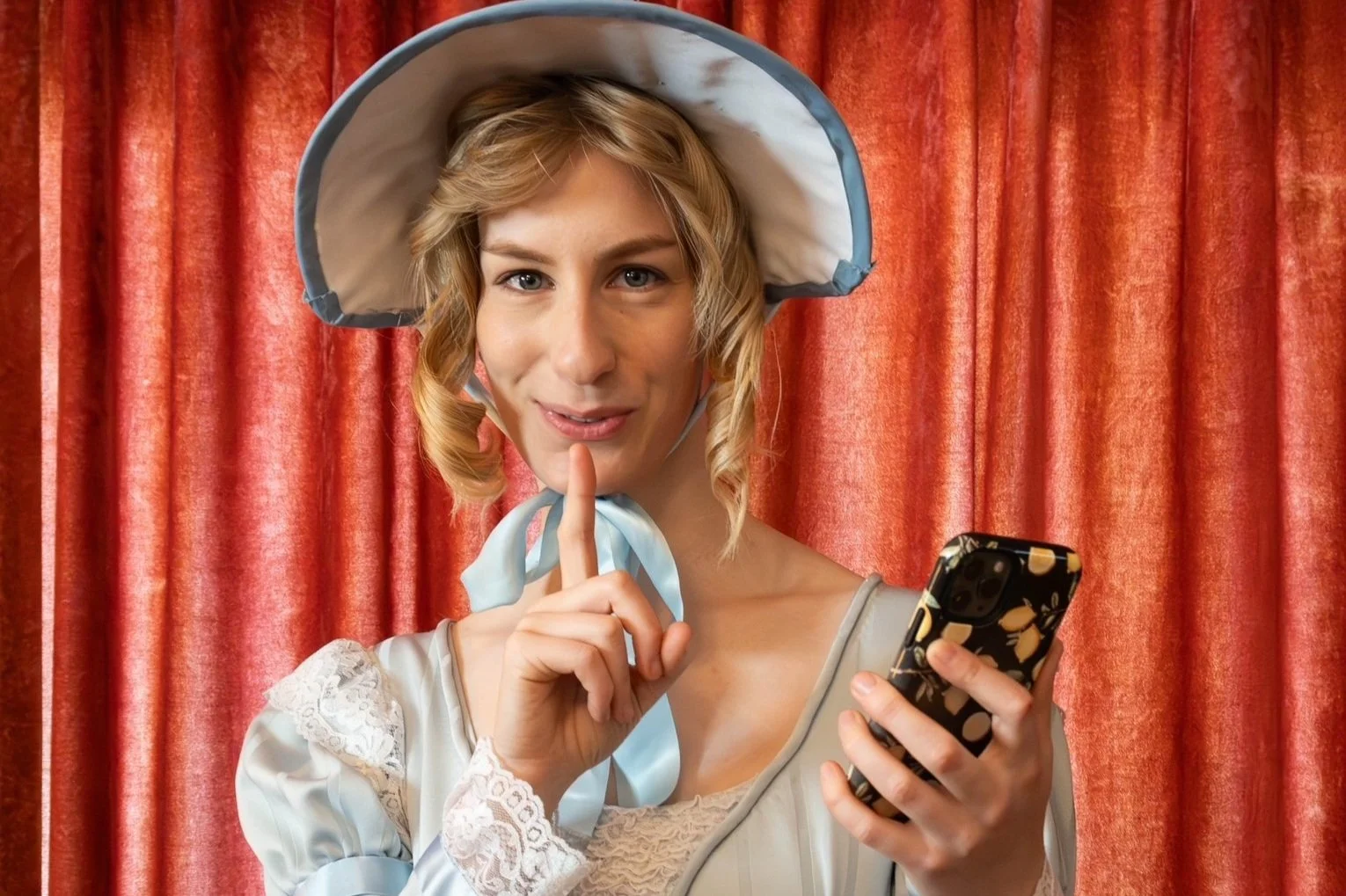Through overheard conversations, playwright discovers the heart of the American people
Destiny, USA draws from writer-performer Laura Anne Harris’s work as a relay operator for the deaf and hard of hearing during the Trump era
Laura Anne Harris in Destiny, USA. Photo by Drew Monrad
Pi Theatre presents Destiny, USA by Laura Anne Harris as part of the Pi Provocateurs series at Suite Genius (225 West 8th Avenue) on February 17 at 8 pm, February 18 at 8 pm, and February 19 at 4 pm and 8 pm. ASL interpretation and artist talkback take place February 18.
LAURA ANNE HARRIS moved to Syracuse, New York from Toronto to be with her husband, who was pursuing his PhD there, right after Donald Trump was elected president in 2016. It was a tectonic cultural shift for the writer, performer, and director, who picked up a job as a relay operator for the deaf, hard of hearing, and people with other conditions that make a conventional phone call difficult if not impossible. In typing conversations for individuals of all backgrounds from every corner of the U.S. map, she got to observe daily life in a way that few of us ever do.
“I was thrust into a world I’ve never encountered before, and I suddenly became a person listening in on thousands of phone conversations across America and really getting a sense of who these people were outside of the media circus, outside of the Trump diatribe,” Harris says in a phone interview with Stir. “I was just an interpreter in this situation; I was a neutral party, a neutral force. I got a little slice of pie into their life—a little slice of life—for five to 10 minutes, then they were gone, they were a stranger again.”
Harris drew on her experiences to create Destiny, USA, a theatre piece with partial closed captioning that she performs in alongside deaf actors and that is coming to Vancouver for Pi Theatre’s Pi Provocateurs series. While the work is mainly autobiographical, Harris changed details to protect the anonymity of the deaf callers.
Destiny, USA is a mosaic of storylines, which include Harris’s move to the States and her experiences on the job in addition to her far-away grief as her mother dies of cancer across the continent in Victoria, B.C. “I do explore grief in the show, but it’s also about how to deal with your grief and how you can find healing and soothing through connecting with strangers,” she says.
Harris, who completed a bachelor of fine arts in theatre (acting specialty) at the University of Victoria and a master’s of fine art in creative writing at UBC, now splits her time between Portland and Vancouver. While Trump gave rise to division in society that has only become greater since his term ended, Harris doesn’t focus on that side of things in the play. She’s far more interested in what unites us.
“It was such a divisive time, and I heard that on the phone,” Harris says. “It was ‘God bless Donald Trump’ or ‘What an idiot, what a clown.’ I hint at him, but my show is testament of what I believe is the real heart of the American people: they’re just trying to live their lives, their day-to-day, which I think is really important to highlight.
“I love looking at the complexity of a situation and how you can look at a scene or an interaction with somebody from so many different angles,” she says. “Ultimately, I want the audience to take away this aspect of empathy and love and hopefully understand we are a lot more similar than we are different.”
Destiny, USA. Photo by Drew Monrad
To present the play in pandemic times, Harris is physically on-stage—in Vancouver, in a site-specific corporate-type setting—while the other actors tune in remotely via video projection. The format reflects a phone call’s inherent physical separation while inviting the audience into the callers’ worlds. It was crucial for the artist to hire deaf actors–Natasha Bacchus, Tamyka Bullen, and Sage Lovell–without whom “there was a missing piece”; through the fictionalized conversations, they each create their own character.
An important element of the making and presenting of Destiny, USA for Harris is to remind individuals–women or those who identify as female or nonbinary in particular–of their value as storytellers; the interweaving of storylines is something that she has associated in the past with male authors like TJ Dawe and Spalding Gray. “For me, it’s really important for females or female-presenting people or nonbinary people or queer people to share their stories and to feel confident that they are enough. That’s a big thing for me.
“Certainly during this pandemic I felt extremely grateful to have this opportunity, and I’m not taking it lightly anymore,” she says. “When it gets taken away from you it’s important to go ‘I’m good enough, this is my story, we’re all here together and look how wonderful that is. Let’s celebrate that.”
For more information, see Pi Theatre.















